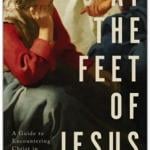In the current issue of The Weekly Standard , Jon A. Shields gives a searing summary of the trial of Kermit Gosnell. He admits, “the liberal position on killing abortion survivors makes a bizarre kind of moral sense,” and then adds: “After all, what is the moral difference between killing an 8-month-old human being in the womb and killing it in the bright light of an operating room? And if there is a difference, can it bear the moral weight... Read more




















